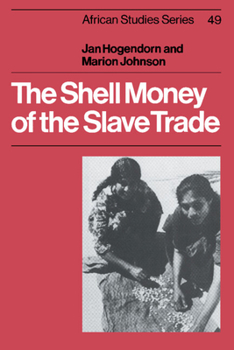The Shell Money of the Slave Trade
Select Format
Select Condition 
Book Overview
This study examines the role of cowrie-shell money in West African trade, particularly the slave trade. The shells were carried from the Maldives to the Mediterranean by Arab traders for further transport across the Sahara, and to Europe by competing Portuguese, Dutch, English and French traders for onward transport to the West African coast. In Africa they served to purchase the slaves exported to the New World, as well as other less sinister exports. Over a large part of West Africa they became the regular market currency, but were severely devalued by the importation of thousands of tons of the cheaper Zanzibar cowries. Colonial governments disliked cowries because of the inflation and encouraged their replacement by low-value coins. They disappeared almost totally, to re-appear during the depression of the 1930s, and have been found occasionally in the markets of remote frontier districts, avoiding exchange and currency control problems.
Format:Paperback
Language:English
ISBN:0521541107
ISBN13:9780521541107
Release Date:September 2003
Publisher:Cambridge University Press
Length:248 Pages
Weight:1.01 lbs.
Dimensions:0.6" x 6.0" x 9.0"
Customer Reviews
0 rating





